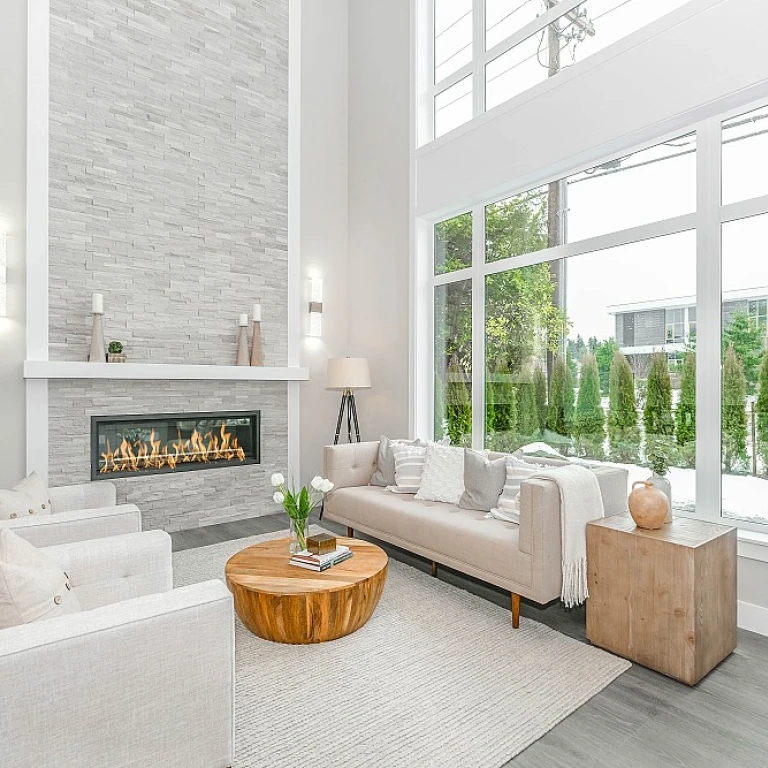The Allure of Historic Homes
Timeless Appeal of Massachusetts' Historic Homes
The charm of historic homes in Massachusetts has remained undeniable through the ages. These exquisite properties, often reflecting distinctive architectural styles like Colonial and Greek Revival, offer a unique blend of past elegance and timeless beauty. From the storied streets of Salem to the quaint lanes of Provincetown, each house available for sale tells a rich history intertwined with the cultural fabric of its locale.
Massachusetts is home to a remarkable variety of antique homes, with real estate opportunities spanning across Essex County, Cape Cod, and even as far as the tranquil landscapes of Berkshire County. Many of these homes, built centuries ago, boast features such as hardwood floors and lush, sprawling acres that contemporary architecture struggles to replicate.
The allure extends beyond the eye-catching exteriors. Inside, buyers often discover expansive living rooms, ornate fireplaces, and a character that only homes built in a bygone era can offer. Indeed, these are not just houses for sale; they're pieces of history inviting you to become part of their ongoing story.
Exploring the allure of these historic estates also comes with its intriguing challenges, especially in terms of balancing preservation with modern conveniences. The decisions involved in maintaining their antique charm while considering factors like financial implications can be complex, yet rewarding. As the market for these houses in Massachusetts continues to thrive, it's crucial to appreciate the delicate dance of preservation versus modernization—a theme explored further in other sections of our discussion.
In the vibrant real estate landscape of Massachusetts, historic homes evoke a sense of nostalgia, making them a perpetual favorite among property enthusiasts. They appeal to those seeking not just any house for sale, but a distinct lifestyle imbued with history and character. For those captivated by such timeless charm, there is a world of opportunity awaiting exploration. Dive deeper into the realm of [luxurious mansions] in the broader context of historical yet opulent living.
Navigating the Purchase of a Historic Home
The Path to Acquiring a Historic Gem
Purchasing a historic home in Massachusetts is akin to stepping into a living piece of history. With an abundance of antique homes peppered throughout the state, each carrying stories of colonial times, finding the right property requires diligence and a touch of patience.
Aspiring buyers need to consider numerous factors when embarking on this journey. Here’s how to navigate this complex yet rewarding path:
- Understanding the Market: Research is crucial, particularly in highly sought-after areas like Cape Cod and Provincetown. Utilizing resources like MLS listings and consulting with experts from firms like Sotheby’s International Realty can offer a clearer perspective on what is available, whether you're eyeing a colonial house or a home with classic Greek Revival architecture.
- Historic Designations and Regulations: Many historic properties, especially those in locales such as Salem and Essex County, are subject to specific preservation laws. Familiarize yourself with these guidelines to ensure compliance and understand any limitations that may affect potential renovations or restorations.
- Inspections and Assessments: Before purchasing, conduct a thorough inspection focusing on the structural integrity and condition of crucial features like hardwood floors, roofs, and even the charming yet aging colonial woodwork. Understanding what repairs might be needed can greatly influence your decision-making and budgeting.
- Financial Implications: Antique homes in strategic locations or with significant historical value might command premium prices. It's wise to assess your financial positioning, taking into account potential federal or state tax incentives available for maintaining and preserving historic estates.
When these steps align perfectly, acquiring a historic home isn’t just a real estate transaction; it’s the purchase of a narrative that will continue for generations. For further insights,
explore the allure of German castles on the market, to draw parallels on how history and real estate fuse to form a unique investment opportunity.
Preservation vs. Modernization
Balancing Historic Integrity with Contemporary Comfort
Purchasing an antique home in Massachusetts comes with the delightful challenge of striking a balance between preservation and modernization. The state, renowned for its rich history and charming historic houses, offers properties that span across colonial, Greek revival, and other architectural styles. Yet, the decision to maintain traditional elements while incorporating modern conveniences is pivotal.
While some buyers might fall in love with the rustic charm of original hardwood floors or the authentic colonial house structures, others may prioritize a more contemporary living experience. Updating systems such as plumbing, electrical, and HVAC is often necessary, yet these updates should respect the building's historic nature.
Real estate buyers might find themselves torn between preserving the home's original character or modernizing to fit today's standards. It’s essential to consider the limitations and possibilities that each property presents. For instance, a historic home in Essex County may offer ample opportunity for expansion, given its acres of landscape, compared to the tighter parcels in Provincetown where modernization might take precedence over square footage.
Modern Amenities Without Sacrificing Character
Incorporating modern amenities can be seamlessly achieved by working with specialists experienced in antique homes. These experts ensure that modernizations – such as the addition of new baths or a renovated kitchen – respect and retain the unique charm that made these homes favorites on the MLS listings.
Careful planning is necessary to maintain the property's historic authenticity while ensuring it meets the demands of modern living standards. A strategic approach to modernization can enhance the property's market appeal, especially in areas like Cape Cod and Salem, where the appeal of a historic aesthetic is complemented by functional updates.
Preservation efforts often attract buyers who cherish the timeless allure of Massachusetts' architectural gems. These homes, with their intricate details and storied pasts, continue to captivate and charm those looking to invest in a piece of the state's history. If your interest leans towards the allure of a downtown penthouse or discovering the joy of owning a historic estate, it’s crucial to weigh both preservation and modernization aspects critically before making a purchase decision.
Financial Considerations for Historic Estates
Financial Aspects of Owning a Historic Treasure
Purchasing a historic home in Massachusetts is not just about aesthetics and charm; it's also a significant financial undertaking. Understanding the key financial considerations involved can guide potential buyers through the process of acquiring a piece of history in Essex County, Boston, or even the Provincetown area.
Historic homes, with their unique characteristics and architectural details, can often command a premium price in real estate markets. In Essex County, for example, antique homes are frequently sought after, given their colonial features and proximity to well-preserved locales like Salem and Cape Cod.
Analyzing the market involves scouring MLS listings for available homes. While conducting a thorough assessment of the homes for sale, potential buyers should pay attention to details such as the number of beds and baths, lot size in acres, and specific features like Greek Revival or colonial styles. A house sale that includes features like original hardwood floors, especially in properties around Berkshire County, holds unique value.
Investing in Upkeep and Restoration
Once secured, maintaining the charm of historic homes often requires ongoing investment. Buyers must be prepared for potential restoration costs, as guidelines in Massachusetts Built neighborhoods often advocate preserving original features. Still, some homeowners might wish to modernize certain areas like the living room or baths for comfort and functionality.
The good news is that some rehabilitation expenses may be offset by available federal or state tax incentives aimed at preserving historic properties. In expert advice often provided by firms such as Sotheby International Realty, considering these financial offsets is crucial when planning restoration.
Evaluating Long-Term Value
Reflecting on long-term value and the potential appreciation of historic properties, especially in sought-after areas like the outskirts of Provincetown or the heart of Boston, is vital. Properties featured on platforms highlighting antique homes or renowned agencies like International Realty might offer insights into community growth and development, influencing the home's future worth.
Thus, buying historic homes, whether Greek Revival treasures or sprawling colonial estates, can be a rewarding investment. A strategic financial plan weighing the current price against potential returns and maintenance costs is essential to safeguarding and benefiting from these timeless properties.
Spotlight on Notable Historic Properties in Massachusetts
Unraveling Massachusetts' Historic Properties
Exploring the rich tapestry of history woven into Massachusetts’ landscape, several historic homes captivate with their architectural beauty and time-honored charm. Each property offers a unique glimpse into the past, often boasting elements like antique hardwood floors, Greek revival architecture, or colonial design. For those seeking a residence with historical significance, these homes provide a distinct character not often found in modern construction.
- Cape Cod Treasures: Nestled within the iconic cape, you'll discover homes that mirror the quintessential New England charm. Acres of preserved land complement these properties, where white clapboards and traditional window accents maintain their colonial allure.
- Essex County Jewels: This area is renowned for its antique homes, many built in the colonial era. With their proximity to the bustling cultural hubs and serene countryside, homes for sale here often feature expansive living rooms and retain original fireplaces and trims.
- Provincetown and Pittsfield Gems: Known for its vibrant art scene and maritime heritage, Provincetown offers as many beds and baths as one might prefer along with incomparable ocean views. Meanwhile, Berkshire County often features sprawling estates that are tucked within the scenic hills.
For prospective buyers, understanding the unique pricing, maintenance, and investment value of such antique homes is essential. Factors like the property’s historical significance, updated amenities, and its location can significantly impact the price. Notably, real estate offerings through renowned agencies like Sotheby's International Realty provide additional resources and expertise when navigating these prized house sale options.
The Modern-Day Appeal of Antique Estates
Today's real estate market reflects a growing desire for homes that offer historical significance alongside modern conveniences. It is a delicate balance between preserving the charm of the past and accommodating contemporary needs.
Intriguingly, Massachusetts appears as a hub of historic civic pride, frequently spotlighted in real estate listings on platforms like MLS for sale across regions from Salem to Boston. As interest in such properties grows, the relationship between preservation and modernization becomes a pivotal discussion point, ensuring these homes continue to tell their stories for future generations.
The Future of Historic Homes in Real Estate
Embracing the Future of Massachusetts Historic Homes
The landscape of Massachusetts' historic homes is continually evolving. While the debate between preservation and modernization remains, these antique structures simultaneously adapt to contemporary demands. In popular areas like Cape Cod and Provincetown, historic homes on spacious acres offer serene retreats just a stone's throw from bustling urban centers. Prospective buyers often fall in love with features like hardwood floors and classic Colonial house styles, which seamlessly blend elegance with functionality.
The commitment to maintain the authenticity of these homes while accommodating modern amenities is essential for their survival in the real estate market. With many maintaining their original beds and baths design, the charm of these homes is their ability to transport owners back in time. However, many properties in counties like Essex and Berkshire are seeing thoughtful updates, keeping their colonial and Greek Revival architecture intact.
As buyers navigate the MLS listings, they are often drawn to properties steeped in history—from those in thriving urban settings like Boston to quieter counties such as Essex County. Each sale Massachusetts undertakes becomes a testament to the enduring legacy of these homes, with international realty firms, including Sotheby International, playing pivotal roles in ensuring they reach the right audience.
In looking ahead, the Massachusetts market reflects a combination of strong appreciation for historical authenticity and the inevitable push toward modernization. Though new challenges arise, the growing interest in prestigious homes for sale signals a bright future, where time-honored beauty coexists with contemporary comforts, maintaining their allure for generations to come. These majestic structures, whether in Salem or provincetown beds, will continue to hold a significant place within the real estate landscape.

